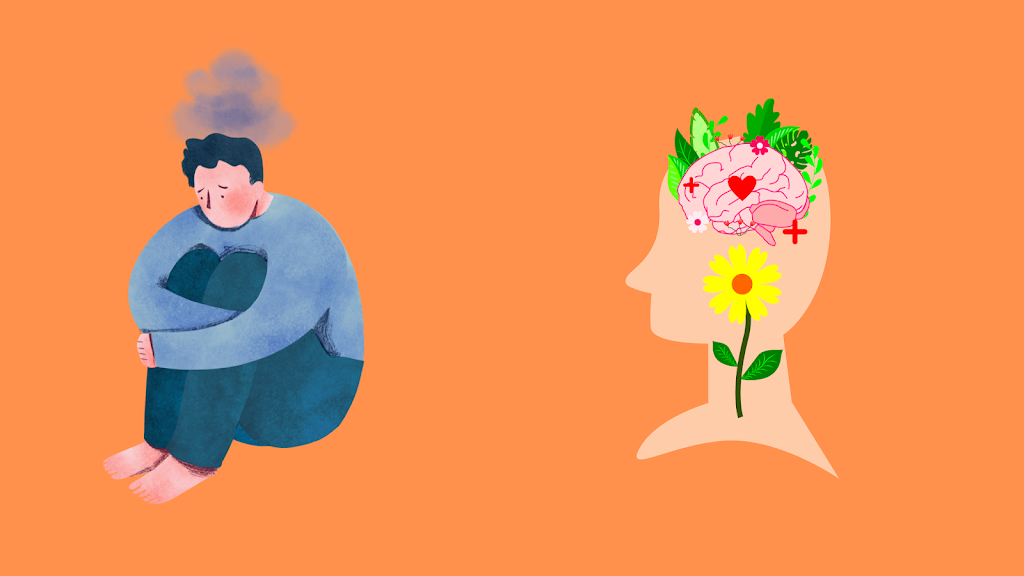
Mental Health
Mental health is an integral component of our overall well-being. Just as we strive to maintain our
physical health through exercise and a balanced diet, it is equally important care for our mental and emotional health. This article will explore the significance of disease, common issues, and practical strategies to nurture andprotect it.
Mental Health
Above mentioned disease is a state of disorder of thinking. It encompasses our thoughts, feelings, and
behaviors and plays a vital role in coping with life’s challenges, maintaining fulfilling relationships, and making sound decisions. Good mental health is not merely the absence of mental illness; it involves the presence of positive
attributes such as resilience, emotional intelligence, and a sense of purpose.
Anxiety Disorders
They include generalized anxiety disorder (GAD), panic disorder, social anxiety disorder, and specific phobias. People with anxiety disorders often experience excessive worry, fear, and nervousness that can interfere with daily life.
Depression
Depression is a pervasive issue characterized by persistent sadness, hopelessness, and a lack of interest in once-enjoyable activities. It affects one’s energy levels, concentration, and ability to function effectively.
Bipolar Disorder
Bipolar disorder is marked by extreme mood swings, cycling between periods of intense elation
(mania) and deep depression. These mood swings can be disruptive and challenging to manage.
Schizophrenia
Schizophrenia is a severe illness that affects an individual’s thinking, perception, and
behavior. It often involves symptoms such as hallucinations, delusions, and impaired cognitive function.
Substance Abuse
Substance abuse often goes hand in hand with mental health issues. People may use drugs or
alcohol to cope with emotional pain, creating a vicious cycle of addiction and mental health deterioration.
Post-Traumatic Stress Disorder (PTSD)
PTSD can develop following exposure to a traumatic event, such as combat, abuse, or a natural disaster. Intrusive thoughts, nightmares, and emotional distress characterize it.
The Importance of Mental Health
Mental Balance is of paramount importance for several reasons:
Overall Well-being: Good mental health contributes to an individual’s overall well-being, quality of life, and ability to experience happiness and fulfillment.
Productivity: A healthy mind is essential for productivity and performance, whether at work or in personal pursuits.
Relationships: Balance health influences how we interact with others. Solid relationships and social support systems are essential for mental well-being.
Coping with Stress: Good health equips individuals with better-coping strategies, enabling them to manage stress and adversity effectively.
Nurturing Mental Health
Self-Care
Self-care is deliberately tending to one’s mental and emotional well-being. It involves regular exercise, meditation, journalism, and maintaining a healthy diet. Self-care provides an opportunity to recharge and reduce stress.
Seek Professional Help
Health professionals, such as psychologists, psychiatrists, and therapists, can provide guidance and support.
Stay Connected
Social isolation can be detrimental to mental health. Maintain connections with friends and loved ones, even if it is sometimes challenging. Talking to someone you trust can be an excellent way to relieve stress and gain perspective.
Manage Stress
Stress is a part of life, but it can be managed. Develop effective stress management techniques,
such as deep breathing, mindfulness, or time management, to reduce the impact of stress on your mental balance.
Set Realistic Goals
Setting and achieving realistic goals can boost self-esteem and a sense of purpose. However, it is essential not to overwhelm yourself with unrealistic expectations, leading to stress and disappointment.
Avoid Substance Abuse
If you turn to substances like alcohol or drugs to cope with stress or emotional pain, seek help to address these issues.
Challenge Negative Thoughts
Negative self-talk and distorted thinking patterns can contribute to mental health issues. Cognitive-behavioral therapy (CBT) is a practical approach for challenging and changing these thought patterns.
Conclusion
Mental balance is essential to our overall well-being, influencing our thoughts, emotions, and behavior. The prevalence of common issues highlights the importance of understanding and addressing this facet of our health. By nurturing our mental health through self-care, seeking professional help, staying connected, managing stress, and adopting healthy coping strategies, we can lead happier, more fulfilling lives.











